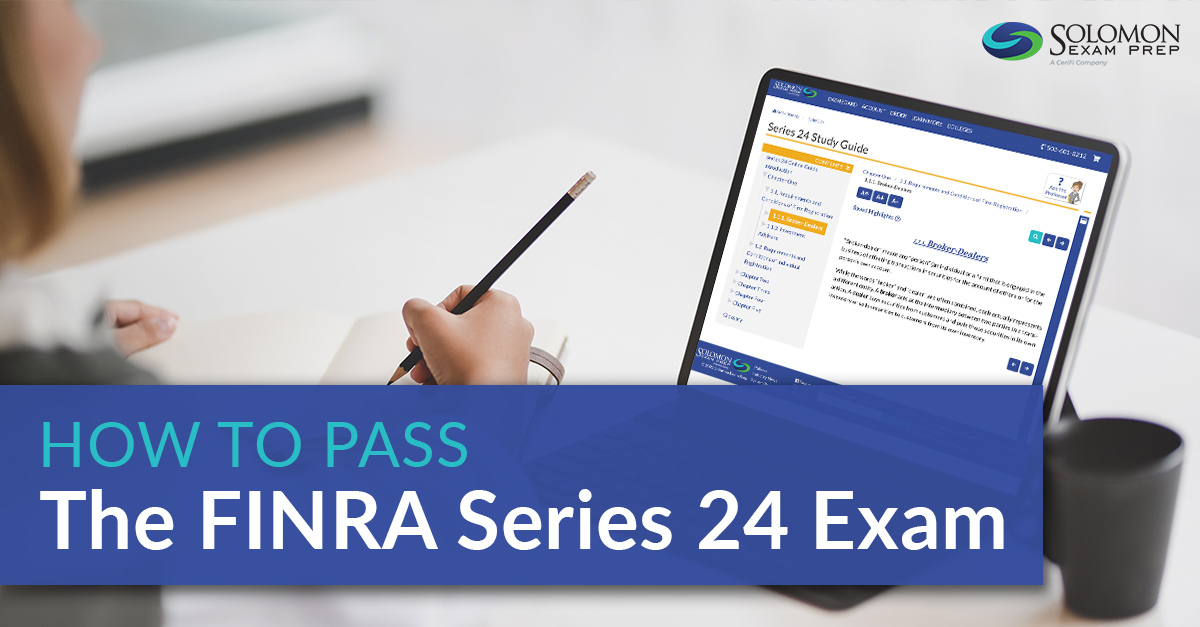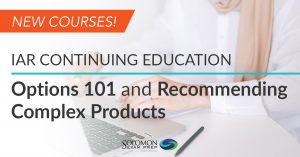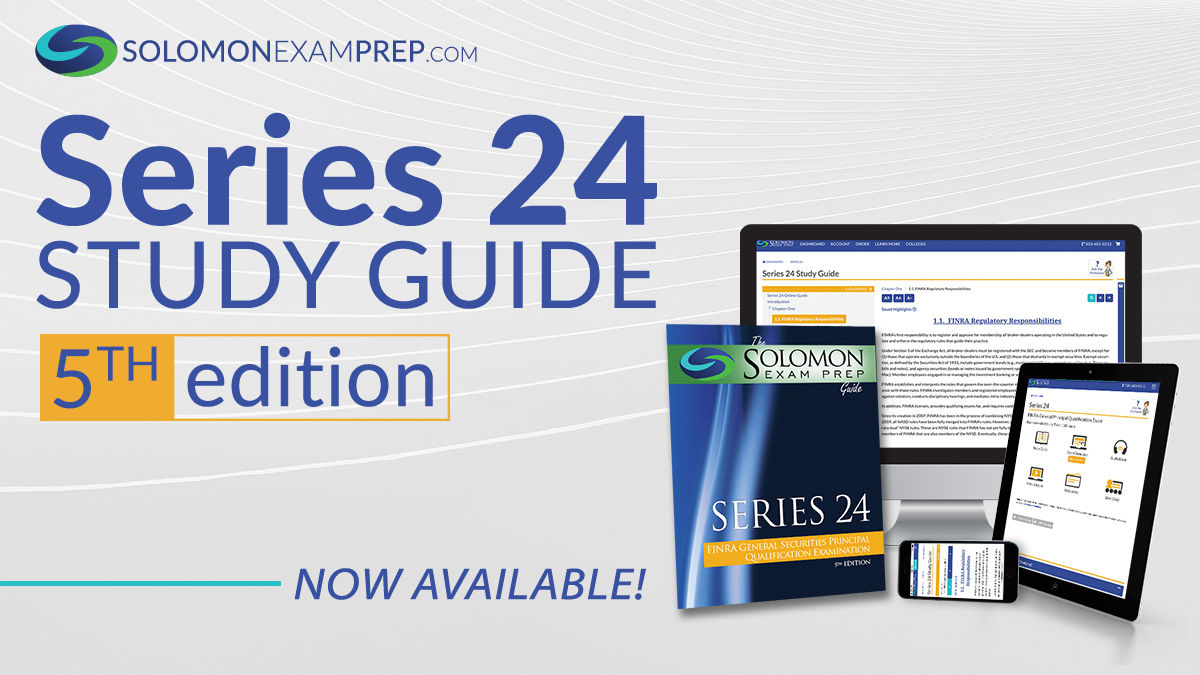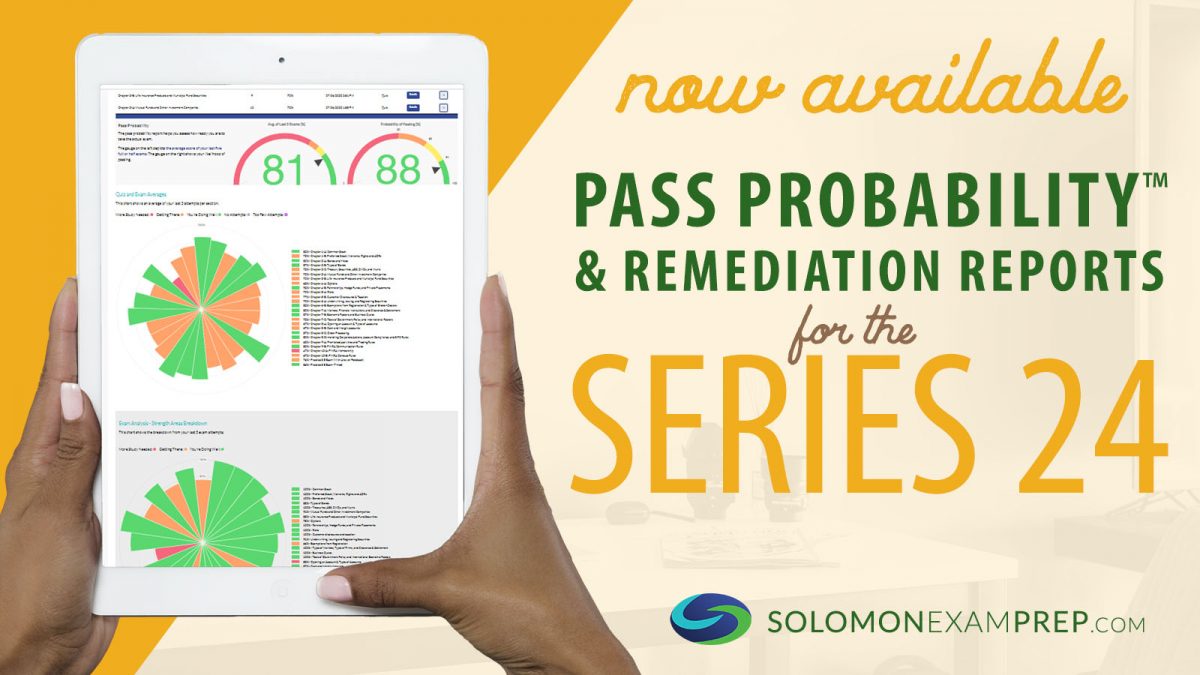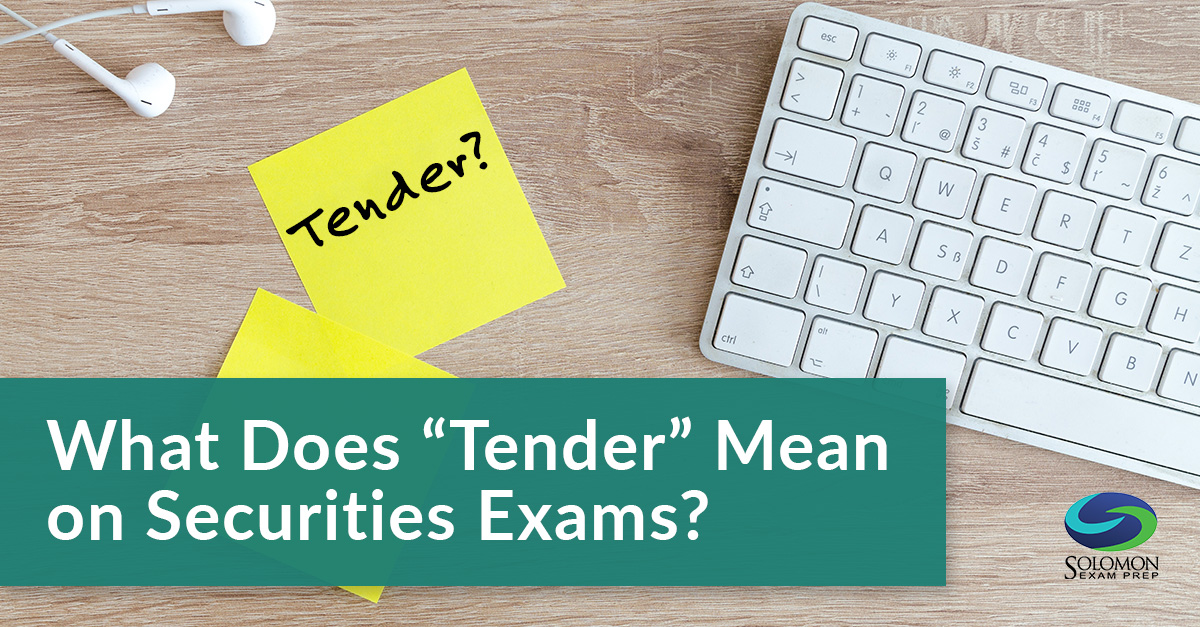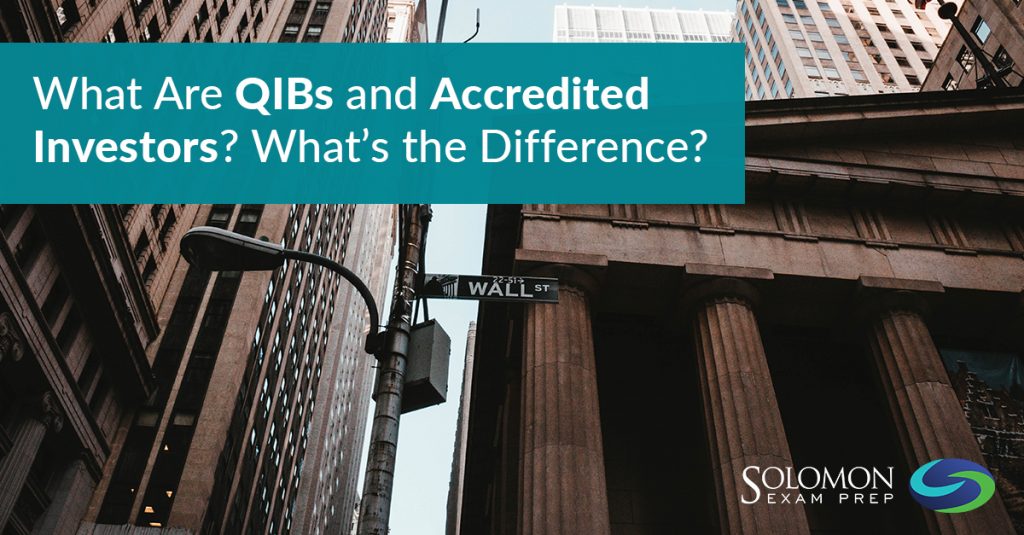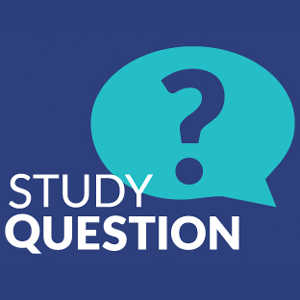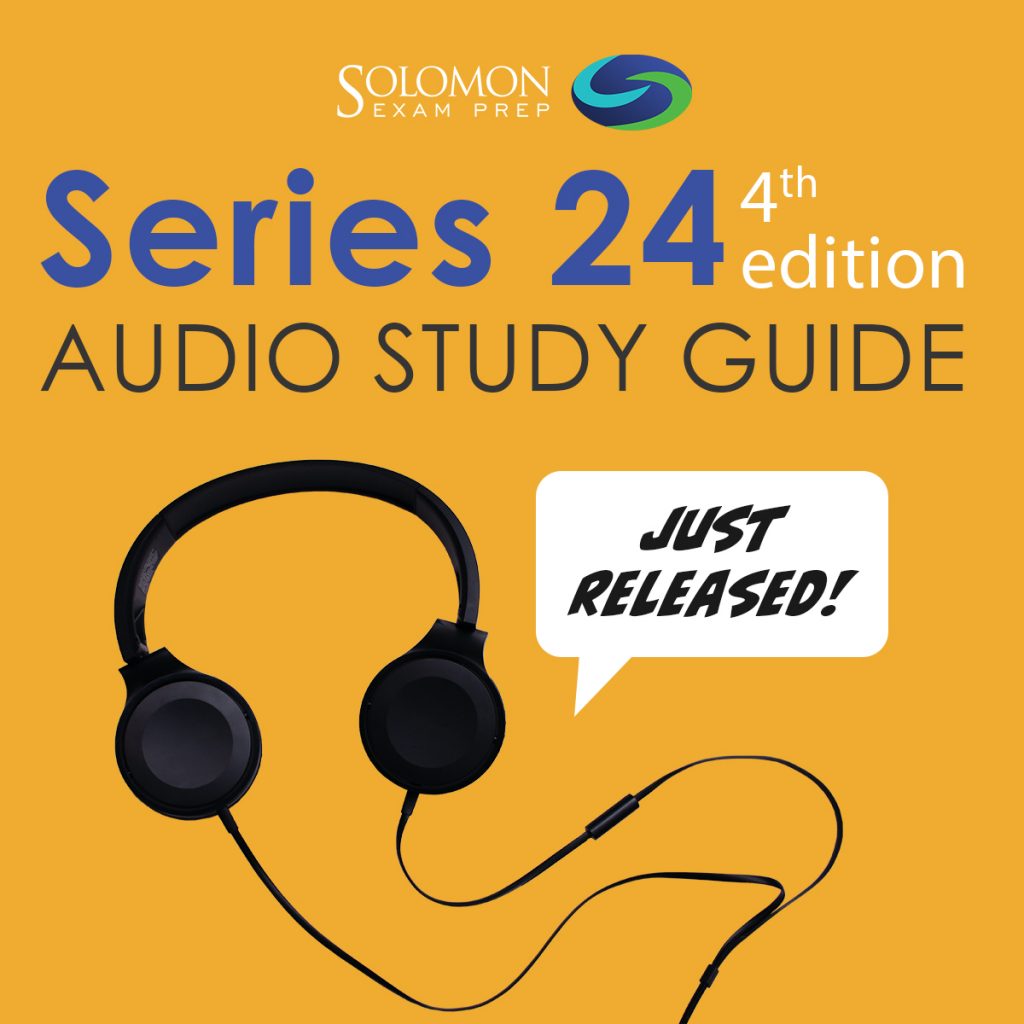What is the Series 24 exam?
The Series 24, also called the General Securities Principal Examination, is a FINRA exam that assesses how competent you are to perform the functions of an entry-level principal at a broker-dealer. A “principal” at a broker-dealer is licensed to supervise others working as securities representatives. Therefore, the Series 24 exam tests your knowledge of rules, regulations, and practices in all areas of a firm’s securities business. Passing the Series 24 qualifies you to supervise advertising, market making, trading, and underwriting.
Are there any prerequisites for the Series 24 exam?
Yes, you must also pass the Securities Industry Essentials (SIE) Exam and a representative-level qualification exam, or the Series 16, to obtain a principal registration. These are the principal registrations depending on which corequisites you earn:
-
- General Securities Principal: SIE + Series 7 + Series 24
- Securities Trader Principal: SIE + Series 57 + Series 24
- Investment Banking Principal: SIE + Series 79 + Series 24
- Private Securities Offerings Principal: SIE + Series 82 + Series 24
- Research Principal: SIE + Series 86 and 87 + Series 24 OR Series 16 + Series 24
About the Exam
The Series 24 exam consists of 150 multiple-choice questions worth one point each. In addition, there are 10 unscored experimental questions distributed randomly throughout the exam. You have three hours and 45 minutes to complete the exam, and you must score 70% or higher to pass.

Note: Scores are rounded down to the next lowest whole number (e.g. 69.9% would be a final score of 69%–not a passing score for the Series 24 exam).
Topics Covered on the Exam
FINRA divides the questions on the Series 24 exam into five areas representing the main job functions of a General Securities Principal.
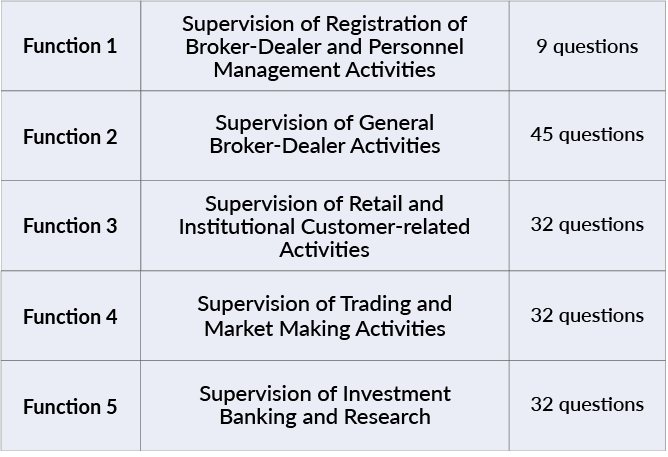
FINRA updates its exam questions regularly to reflect the most current rules and regulations. Solomon recommends that you print out the current version of the FINRA Series 24 Content Outline and use it in conjunction with the Solomon Series 24 Study Guide. The Content Outline is subject to change without notice, so make sure you have the most recent version.
Series 24 Example Questions
The Series 24 exam consists of multiple-choice questions, each with four options. You may see the following question structures. However, keep in mind that these sample questions don’t necessarily represent the difficulty level or subjects covered in the exam.
Closed Stem Format:
This item type asks a question and gives four possible answers to choose from.
If a registered person leaves the securities industry and enrolls in the Maintaining Qualifications Program (MQP) how long can he remain outside of the industry before he will be required to retake his qualification exam(s)?
-
- Two years
- Three years
- Five years
- Seven years
Open Stem Format:
This kind of question has an incomplete sentence followed by four possible conclusions.
In order to use customers’ free credit balances in its business operations, a firm must send a written notification to customers that:
-
- Affirms that their free credit balances are segregated
- States the amount of money the firm owes the account
- Requests written permission from the customer to borrow from the account
- Affirms that all funds will be repaid with interest in 90 days
“Except” (or “Not”) Format:
This type requires an answer that is incorrect or is an exception among the four answer choices.
A registered principal is conducting his firm’s annual internal inspection at its OSJs. The principal must do all of the following, except:
-
- Review customer account records for irregularities and abuses
- Test policies and procedures for safeguarding customer accounts
- Evaluate supervision of customer accounts serviced by branch office managers
- Approve all retail communications to be used in the coming year
- Answers: 1. C 2. B 3. D
For more Series 24 practice questions, try a free sample of the Solomon Series 24 Exam Simulator. You receive instant feedback on each question with a robust explanation of the correct answer.
Taking the Series 24 Exam
To take the Series 24 exam, you must be associated with and sponsored by a FINRA member firm. Your firm must enroll you to take the exam through FINRA. Once FINRA processes your enrollment, you have a 120-day window in which to schedule and take the exam.
The exam is taken at a Prometric testing center via computer. Like all securities industry exams, the Series 24 is closed-book. The testing center will provide you with any materials you need to take the exam, such as a four-function calculator, erasable note board, dry-erase markers, and noise-cancelling headphones. The inspection and sign-in requirements at testing centers are stringent, so arrive at least 30 minutes before your appointment.
Test-Taking Tips
Here are some basic test-taking strategies to remember when taking your exam. Don’t spend too much time on any one question. This could cause you to run out of time and not get to other questions you know. If you’re not sure about a question, take your best guess and mark it for review. There’s no penalty for guessing, so try to answer every question.
After you’ve answered all the questions, you can go back to any questions you flagged for review. This strategy allows you to efficiently answer the ones you know. You might also learn something later in the exam that helps you answer an earlier question. Just remember to factor in some time to return to the questions you flagged. However, don’t simply skip all of the difficult questions with the plan to answer them later. Instead, make a sincere effort to answer each question before moving on to the next one because your mind is fresher earlier on during the exam.
How to Study for the Series 24 Exam
Follow Solomon Exam Prep’s proven study system:
-
- Read and understand. Read the Solomon Study Guide, carefully. Many students read the Study Guide two or three times before taking the exam. To increase your ability to focus while reading, or as an alternative to reading, listen to the Series 24 Audiobook, which is a word-for-word reading of the Study Guide.
- Take chapter quizzes in the Exam Simulator. When you finish reading a chapter in the Study Guide, take 4–6 chapter quizzes in the Exam Simulator. Use these quizzes to give yourself practice and to find out what you need to study more. Make sure you read and understand the question rationales.
- Take full practice exams in the Exam Simulator. When you’ve finished reading the entire Study Guide, review your handwritten notes once more. Finally, start taking full practice exams in the Exam Simulator. Aim to pass at least six full practice exams and try to get your Solomon Pass Probability™ score to at least 80%. When you reach that point, you’re probably ready to sit for the Series 24 exam.
Use these effective study strategies:
-
- Take handwritten notes. As you read the Study Guide, take handwritten notes and review your notes every day for 10–15 minutes. Studies show that taking handwritten notes in your own words and then reviewing them strengthens learning and memory.
- Make flashcards. Making your own flashcards is another proven method to reinforce memory and strengthen learning.
- Research. Research anything you don’t understand. Curiosity = learning. Students who take responsibility for their own learning by researching anything they don’t understand get a deeper understanding of the subject matter and are much more likely to pass.
- Become the teacher. Studies show that explaining what you’re learning greatly increases your understanding of the material. Ask someone in your life to listen and ask questions, or explain it out loud to yourself. Studies show this helps almost as much as explaining to an actual person (see Solomon’s blog post to learn more about this strategy!).
Take advantage of Solomon’s supplemental tools and resources:
-
- Use all the resources. The Series 24 Resources folder in your Solomon student account has helpful study tools, including detailed study schedules that you can print out. Or, use the online study schedule and check off tasks as you complete them.
- Use Ask the Professor. If you have a content-related question, click the Ask the Professor button in your account dashboard and get personalized help from a Solomon professor
-
Good practices while studying:
- Take regular breaks. Studies show that if you’re studying for an exam, taking regular walks in a park or natural setting significantly improves scores. Walks in urban areas or among people did not improve test scores.
- Get enough sleep. Sleep consolidates learning into memory, studies show. Be good to yourself while you’re studying for the Series 24: exercise, eat well, and avoid activities that will hurt your ability to get a good night’s sleep.
You can pass the FINRA Series 24 exam! It just takes focus and determination. Solomon Exam Prep is here to support you on your path to becoming a General Securities Principal.
Explore all Solomon Series 24 exam prep, including the Study Guide, Exam Simulator, Audiobook, and Video Lecture.
And join the Solomon email list to hear about new product releases, industry news, and more! Just click the button below:

